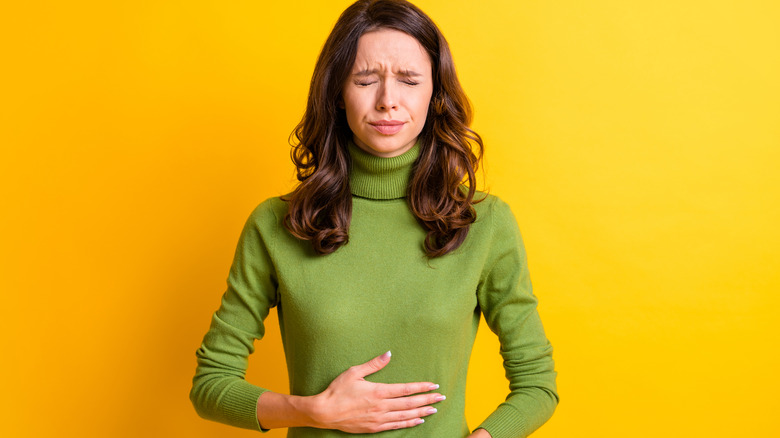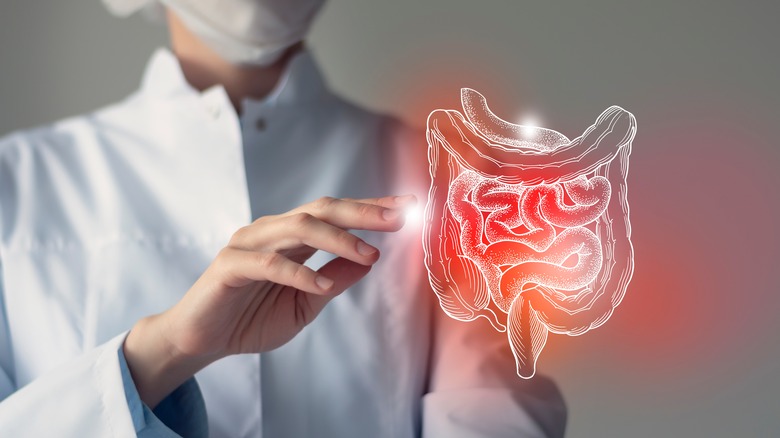How To Tell If You Are Having A Diverticulitis Attack Or Food Poisoning
Abdominal pain and cramps. Bloating and fever. These are common symptoms of both diverticulitis and food poisoning, so how do you know which one is causing your symptoms? The truth is that only a medical professional can make the correct diagnosis, but there are some different symptoms of diverticulosis and food poisoning that you may want to know.
According to the Mayo Clinic, symptoms of food poisoning usually develop shortly after consuming the contaminated food, which is a strong clue. This can be just a couple of hours afterward, or it can be a day or two later. Food poisoning also often causes diarrhea, which is not associated with diverticulosis. This can lead to dehydration as you empty your body of all liquids. If a case of food poisoning does not resolve itself in a couple of days, or if dehydration, extreme pain, high fever, or neurological symptoms develop, you should see a doctor as soon as possible (via the Mayo Clinic).
How to know if I have diverticulitis?
Diverticulosis is an infection in your intestinal tract that arises when food gets stuck in pouches called diverticula. People develop diverticula for many reasons, but they are much more common in people over 40 and in men, while being overweight and eating a low fiber diet are also risk factors, according to the Cleveland Clinic. The presence of these diverticula is known as diverticulosis. When they become infected, you may feel symptoms like pain and swelling, leading to a condition called diverticulitis.
One of the telltale signs that you are suffering from diverticulitis and not food poisoning is that the pain is usually focused on the lower left-hand side of the abdomen. This is because there is an "S" shaped bend in the intestine there that tends to be where food gets stuck in the diverticula (via the Cleveland Clinic). Unlike food poisoning, diverticulitis is more associated with constipation than diarrhea, so that may be another clue. Because both of these conditions can result in serious complications if they advance and are not treated, seeking a medical professional's help is recommended if they do not clear on their own within a day or two.


